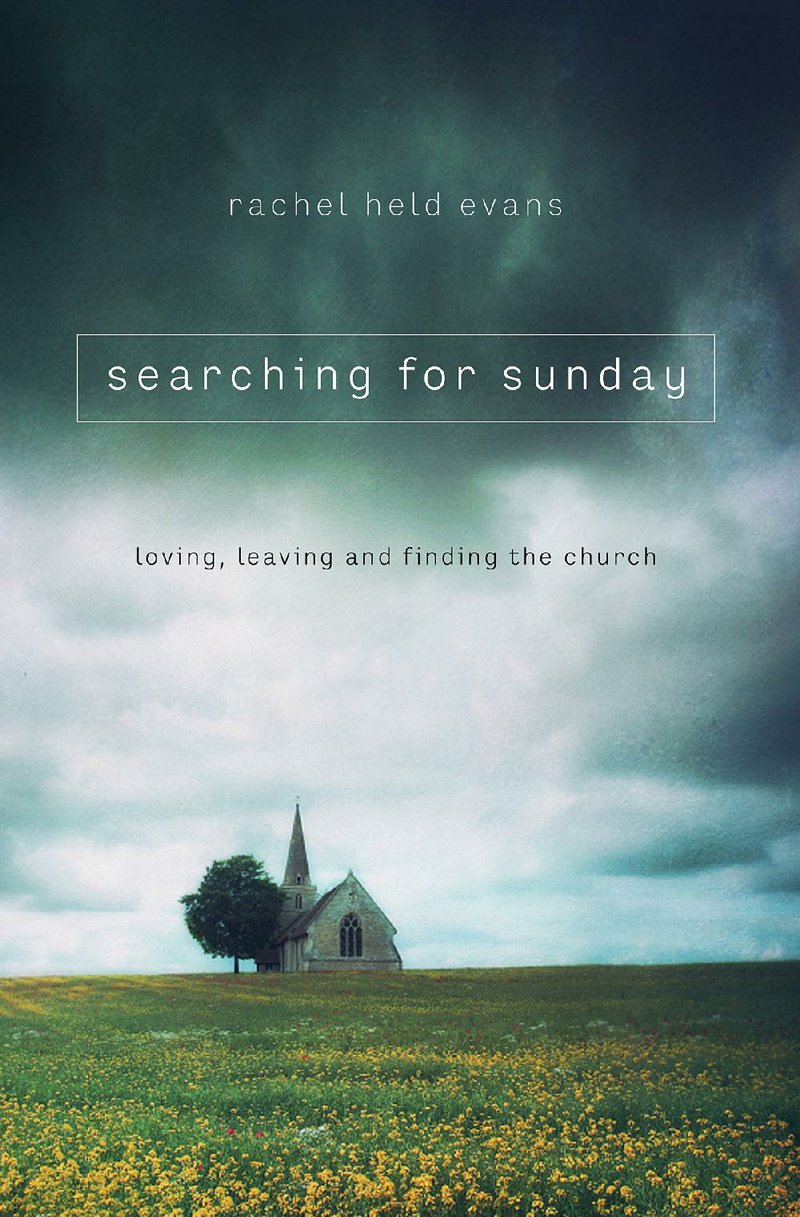Rachel Held Evans has a message for churches desperate to attract young adults to their congregations. Trendy worship bands, coffee houses and pastors in skinny jeans aren't what they are seeking.
"Millennials aren't looking for a hipper Christianity," she says. "We're looking for a truer Christianity, a more authentic Christianity."
At 33, Evans is in the upper range of the Millennial category (generally people born between 1965-1984) -- a group that churches have struggled to attract and keep. Because of that, The New York Times best-selling author is often asked to speak to church groups about why so many in her generation are leaving the church. In her latest book, Searching for Sunday: Loving, Leaving, and Finding the Church, Evans tells her own story of leaving the church and of finding her way back.
Evans will speak during the Cotham Lectures on May 3-4 at Westover Hills Presbyterian Church, 6400 Richard B. Hardie Drive, Little Rock. She will preach during the 10:30 a.m. service May 3 and will speak at 7 p.m. A question and answer session and reception will follow. Evans will also speak at 7 p.m. May 4, with a question and answer session to follow.
A native of Alabama, Evans grew up in an evangelical Protestant church. She had questions. She had doubts, some of which she explored in her first book, Faith Unraveled (originally published as Evolving in Monkey Town). Her best-seller, A Year of Biblical Womanhood: How a Liberated Woman Found Herself Sitting on Her Roof, Covering Her Head and Calling Her Husband Master, detailed her year-long quest to follow the Bible's instructions for women as literally as possible.
Searching for Sunday is a more personal book, one that Evans said she found challenging to write. In talking with her readers and social media followers, Evans said they shared a common question: "What am I supposed to do about church?"
"I don't always fit in a church community, so that's what I was asking, too," Evans said.
The book is her answer to that question. Evans said many of those in her generation are often disillusioned by the church and the hypocrisy they say they encounter there.
"I was looking for, and a lot of Millennials are looking for, a safe place to ask tough questions, to really wrestle with the big questions of faith in a safe environment," she said. "One reason a lot of Millennials leave church is they feel they can't bring their full selves to church. They feel like they have to check their questions at the door, check their intellect at the door and don't feel it's a place they can be honest about their struggles, sins and doubts."
Evans said she was looking for a community where she could be herself and ask those questions without fear of being ostracized.
The author said she found her way back to the church -- though not the evangelical church of her past -- through the sacraments. She writes about seven in the book -- baptism, confession, holy orders, communion, confirmation, anointing of the sick and marriage. Evans explores the imagery of each and what they mean in the life of a Christian.
"There's something tactile in the nature of the sacraments," Evans said. "I had reduced my faith to a list of propositions to believe. God was very much in my head, and the sacraments have a way of getting God outside of my head and into that experience of God in community that a lot of people really long for."
Evans said rediscovering and exploring each of the sacraments was interesting, but she learned the most about anointing of the sick.
"I thought of it as a magic charm or a superstition, but as I studied the sacrament and its purpose, I realized it's not about curing, it's about healing," she said. "Anointing is a way of acknowledging someone's suffering as important and significant and saying, 'I'm going to stick with you no matter the outcome.' It's more of a commissioning and acknowledgment that suffering is a holy struggle and part of what it means to be the church is to be with people in that struggle."
Evans said she was drawn to the Episcopal Church because of its emphasis on the sacraments, and because of the liturgy.
"I really appreciate the centrality of the Eucharist, that the climax of worship is coming to the table and that's the center of everything," she said.
Evans said the book isn't about her turning her back on evangelicalism.
"I make a real effort to acknowledge how much I deeply appreciate my evangelical upbringing," she said. "I still have that evangelical view of the world. I can't shake that off. It's not about kicking one to the curb in favor of another. The central question of the book is, 'Is church valuable?' and to me the answer is a resounding 'Yes.'"
Evans said she hopes readers will come away feeling hopeful about the church again.
"I'm certain there are people just like me sitting in their church pews and wondering, 'Am I the only one who sometimes doubts that any of this is true?' I want them to know you are not the only one," she said. "And I hope it offers them some hope and some healing, especially those who've been hurt by church."
Information about Evans' speaking schedule at Westover Hills Presbyterian Church is available online at westoverhills.org or by calling (501) 663-6383.
Religion on 04/25/2015

